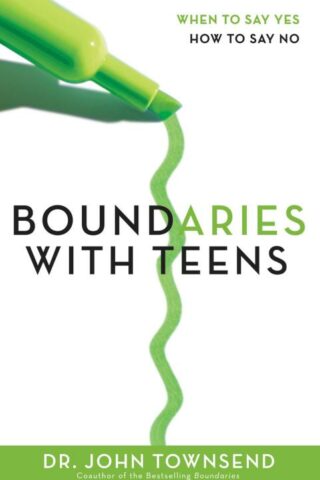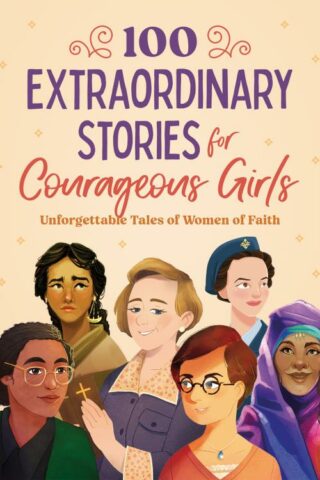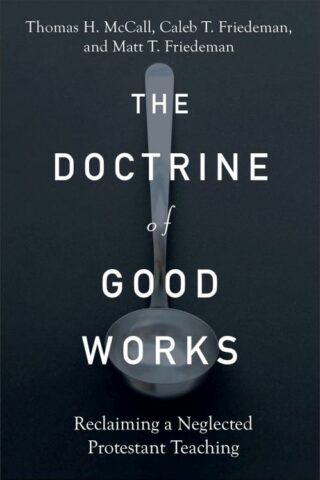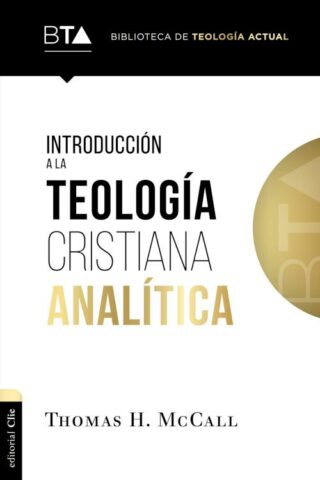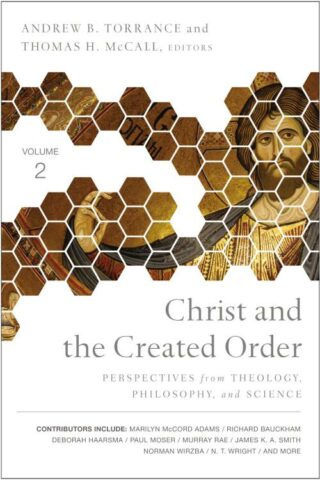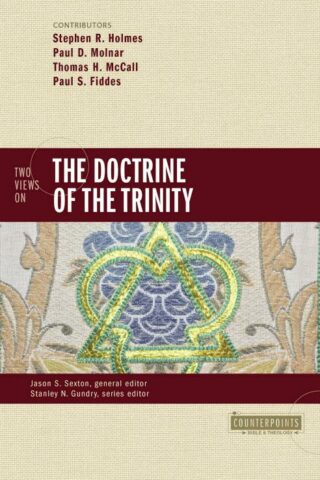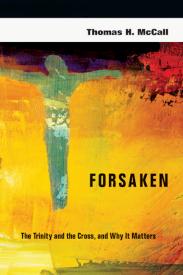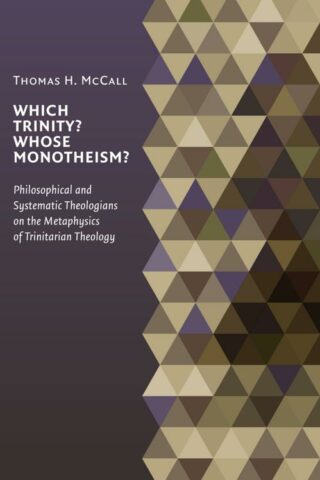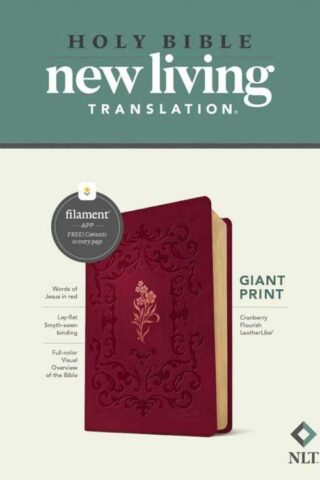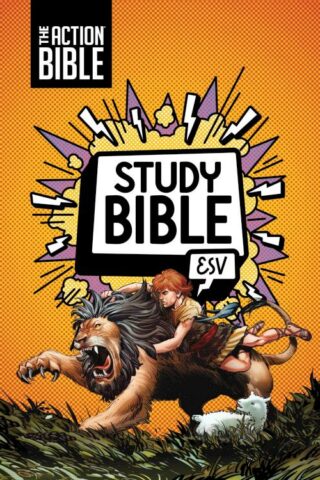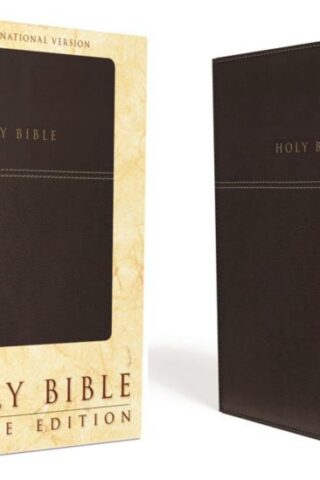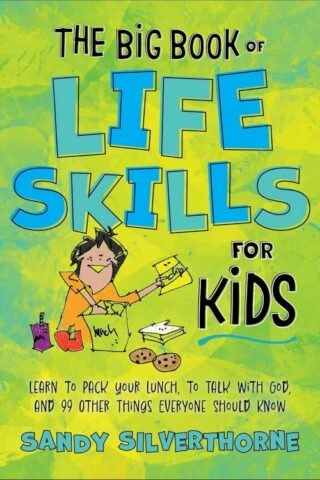Thomas McCall
Showing all 6 resultsSorted by latest
-
Doctrine Of Good Works
$27.99In Titus, Paul says Christ redeemed a people “zealous for good works.” Despite this declaration and others like it, the doctrine of good works has fallen on hard times in contemporary Protestant theology and practice. At best, it’s neglected–as in most systematic theologies and in too much church teaching. At worst, it’s viewed with suspicion–as a threat to salvation by grace alone through faith alone.
In this important work addressing a significant gap in current theological literature, the authors argue that by jettisoning a doctrine of good works, the contemporary church contradicts historical Protestantism and, more importantly, biblical teaching. They combine their areas of expertise–exegesis, systematic and historical theology, and practical theology–to help readers recover and embrace a positive doctrine of good works. They survey historical Protestant teaching to show the importance of the doctrine to our forebears, engage the scriptural testimony on the role of good works, formulate a theology of salvation and good works, and explore pastoral applications.
Add to cartin stock within 3-5 days of online purchase
-
Introduccion A La Teologia Cri – (Spanish)
$19.99En las ultimas decadas ha surgido un nuevo movimiento que lleva las herramientas conceptuales de la filosofia analitica a la reflexion teologica. Llamada teologia analitica, busca traer una claridad de pensamiento y un uso disciplinado de la logica al trabajo de la teologia cristiana constructiva. En esta introduccion a la teologia analitica para especialistas y no especialistas por igual, Thomas McCall expone lo que es y lo que no es. La meta de este campo creciente y energetico no es la eliminacion de todo misterio en la teologia. Al mismo tiempo, insiste en que el misterio no debe confundirse con la incoherencia logica. McCall explica las conexiones de la teologia analitica con las Escrituras, la tradicion cristiana y la cultura, usando estudios de caso para iluminar su discusion. Mas alla de la mera descripcion, McCall llama a la disciplina a un compromiso mas profundo con los recursos tradicionales de la tarea teologica.
En esta introduccion a la teologia analitica para especialistas y no especialistas por igual, Thomas McCall establece lo que es y lo que no es. El objetivo de este campo creciente y energetico no es la eliminacion de todo misterio en teologia. Al mismo tiempo, insiste en que el misterio no debe confundirse con la incoherencia logica.
An Invitation to Analytic Christian Theology
In recent decades a new movement has arisen, bringing the conceptual tools of analytic philosophy to bear on theological reflection. Called analytic theology, it seeks to bring a clarity of thought and a disciplined use of logic to the work of constructive Christian theology. In this introduction to analytic theology for specialists and non-specialists alike, Thomas McCall lays out what it is and what it isn’t. The goal of this growing and energetic field is not the removal of all mystery in theology. At the same time, it insists that mystery must not be confused with logical incoherence. McCall explains the connections of analytic theology to Scripture, Christian tradition and culture, using case studies to illuminate his discussion. Beyond mere description, McCall calls the discipline to a deeper engagement with the traditional resources of the theological task.
In this introduction to analytic theology for specialists and non-specialists alike, Thomas McCall lays out what it is and what it isn’t. The goal of this growing and energetic field is not the removal of all mystery in theology. At the same time, it insists that mystery must not be confu
Add to cartin stock within 3-5 days of online purchase
-
Christ And The Created Order
$36.99According to the Christian faith, Jesus Christ is the ultimate revelation not only of the nature of God the Creator but also of how God the Creator relates to the created order. The New Testament explicitly relates the act of creation to the person of Jesus Christ – who is also a participant within creation, and who is said, by his acts of participation, to have secured creation’s ultimate redemption from the problems which presently afflict it. Christian theology proposes that Jesus Christ, the incarnate Word and Wisdom of God, the agent in whom the Spirit of God is supremely present among us, is the rationale and the telos of all things – time-space as we experience and explore it; nature and all its enigmas; matter itself. Christology is thus utterly fundamental to a theology of creation, as this is unfolded both in Scripture and in early Christian theology.For all this, the contemporary conversation about science and faith tends, to a remarkable degree, to neglect the significance of Jesus Christ, focusing instead on a generic “God of wonder” or “God of natural theology.” Such general theism is problematic from the perspective of Christian theology on many levels and has at times led to a more or less deistic theology: the impression that God has created the world, then largely left it to itself. Such a theology is far removed from classical Christian renderings of creation, providence, redemption, and eschatology. According to these, the theology of creation is not just about remote “beginnings,” or the distant acts of a divine originator. Rather, the incarnate Jesus Christ is himself – remarkably – the means and the end for which creation itself exists. If we would think aright about our world, study it and live within it wisely, we must reckon centrally with his significance.What might such a bold claim possibly mean, and why is Jesus Christ said by Christian theology to be so important for understanding God’s overall relationship to the created order? What does this importance mean for science?Christ and the Created Order addresses these questions by gathering insights from biblical scholars, theologians, historians, philosophers, and scientists. This interdisciplinary collection of essays reflects on the significance of Jesus Christ for understanding the created world, particularly as that world is observed by the natural sciences.Contributors to Christ and the Created Order include Marilyn McCord Adams, Richard Bauckham, Deborah Haarsma, Paul Mo
Add to cartin stock within 3-5 days of online purchase
-
2 Views On The Doctrine Of The Trinity
$24.98The doctrine of the Trinity stands front and center of the Christian faith and its articulation. After a sustained drought of trinitarian engagement, the doctrine of the Trinity has increasingly resurged to the forefront of Evangelical confession. The second half of the twentieth century, however, saw a different kind of trinitarian theology developing, giving way to what has commonly been referred to as the ‘social Trinity.’ Social—or better, relational—trinitarianism has garnered a steady reaction from those holding to a classical doctrine of the Trinity, prompting a more careful and thorough re-reading of sources and bringing about not only a much more coherent view of early trinitarian development but also a strong critique of relational trinitarian offerings. Yet confusion remains. As Evangelicals get better at articulating the doctrine of the Trinity, and as the current and next generation of believers in various Christian traditions seek to be more trinitarian, the way forward for trinitarian theology has to choose between the relational and classical model, both being legitimate options. In this volume, leading contributors—one evangelical and one mainline/catholic representing each view—establish their models and approaches to the doctrine of the Trinity, each highlighting the strengths of his view in order to argue how it best reflects the orthodox perspective. In order to facilitate a genuine debate and to make sure that the key issues are teased out, each contributor addresses the same questions regarding their trinitarian methodology, doctrine, and its implications. Contributors include: Stephen R. Holmes; Paul D. Molnar; Thomas H. McCall; and Paul S. Fiddes.
Add to cartin stock within 3-5 days of online purchase
-
Forsaken : The Trinity The Cross And Why It Matters
$25.99My God, My God, why have you forsaken me? How should a Christian interpret this passage? What implications does the cross have for the trinitarian theology? Did the Father kill the Son? Theologian Thomas McCall presents a trinitarian reading of Christ’s darkest moment–the moment of his prayer to his heavenly Father from the cross. McCall revisits the biblical texts and surveys the various interpretations of Jesus cry, ranging from early church theologians to the Reformation to contemporary theologians. Along the way, he explains the terms of the scholarly debate and clearly marks out what he believes to be the historically orthodox point of view. By approaching the Son’s cry to the Father as an event in the life of the Triune God, Forsaken calls the church to a new reverence for the cross.
Add to cartin stock within 3-5 days of online purchase
-
Which Trinity Whose Monotheism
$33.99The last few decades have witnessed a renaissance of Trinitarian theology. Theologians have worked to recover this doctrine for a proper understanding of the God and for the life of the church. At the same time, analytic philosophers of religion have become keenly interested in the Trinity, engaging in vigorous debates related to it. To this point, however, the work of the two groups has taken place in almost complete isolation from one another. Which Trinity? Whose Monotheism? Seeks to bridge that divide. / Thomas H. McCall compares the work of significant philosophers of religion – Richard Swinburne, Brian Leftow, and others – with that of influential theologians such as Ji 1/2rgen Moltmann, Robert Jenson, and John Zizioulas. He then evaluates several important proposals and offers suggestion for the future of Trinitarian theology. / There are many books on the doctrine of the Trinity, but no other book brings the concerns of analytic philosophers of religion into direct conversation with those of mainstream theologians.
Add to cartin stock within 3-5 days of online purchase

